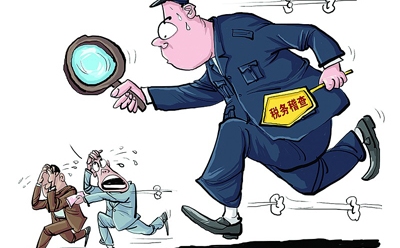A Tax on Mooncakes?
 A document released by the State Administration of Taxation (SAT) on September 4th sparked fears that the country's tax agency would begin taking additional bonuses like transportation payments, communication subsidies and other benefits into account when determining the amount of taxable income individuals receive.
A document released by the State Administration of Taxation (SAT) on September 4th sparked fears that the country's tax agency would begin taking additional bonuses like transportation payments, communication subsidies and other benefits into account when determining the amount of taxable income individuals receive.
Local media, quoting tax officials, also reported that employees may also be forced to pay income tax on material gifts, like mooncakes, that many employees receive from their employers.
However, according to an official with the Ministry of Finance, there has been widespread misunderstanding of the nature of the official announcement.
He clarified the issue by noting that both transportation (public transport, taxi and fuel receipts) and communication benefits have been included in the calculation of individual taxable income since 1999, and that most people should be paying tax on these additional benefits already.
He also made clear that the announcement that sparked the controversy was simply a routine response to queries from large enterprises that are currently being forced to complete internal tax audits as part of a coordinated project to squeeze more tax revenue from China's largest companies.
The audits are being carried out as part of a campaign by the SAT to reach the ambitious fiscal revenue goals that they have set themselves for 2009. You can read more details about the drive to increase tax receipts in our recent special focus on tax policy.
According to the tax department's announcement, if local authorities have not specified the exact amount of the monthly traffic and communication expenses that are to be exempt from taxation, the tax office will use a standard that deems 30% of the total monthly transportation funds as tax free. Similarly, 20% of the total amount of monthly communication benefits allotted will not be included when calculating the tax burden of individual employees.
The announcement, which was solely aimed at the 30 or so large companies currently undertaking internal audits at the tax office's request, was picked up on by the media and led to individuals fearing a possible decline in their take home pay.
The SAT was forced to release a second statement that clarified that the announcement did not reveal new laws, but was simply aimed at giving advice to a number of large companies on how to interpret various aspects of the existing law.
Despite a law indicating that all additional income (aside from a certain non-taxable portion, the amount of which that is set by local authorities), should be used when calculating the tax owed by individual tax payers, in reality, many Chinese companies do not take this additional income into account. Instead, additional income in the form of loosely regulated transportation and communication benefits allow companies to offer more competitive packages to employees without increasing the amount of tax to be paid on their income.
Links and Sources
ctaxnews.com.cn: Regulations (Chinese) - full text
State Administration of Taxation: Clarification (Chinese)
Beijing News: Report (Chinese)
hsw.cn: image
The views posted here belong to the commentor, and are not representative of the Economic Observer |
Related Stories
Popular
Briefs
- A Tax on Mooncakes?
- A routine announcement from China's tax bureau has set off fears that China will start taxing the gray income of individual employees

- Source:State Administration of Taxation
- China Accuses U.S of Trade Protectionism After President Imposes Tire ...
- A U.S decision to impose special duties on Chinese tires has increased trade tensions between the two countries.

- Source:Ministry of Commerce

- TAX
- Taxing Times
- China's tax bureau aims to collect an additional 100 billion in tax before the end of the ...




















